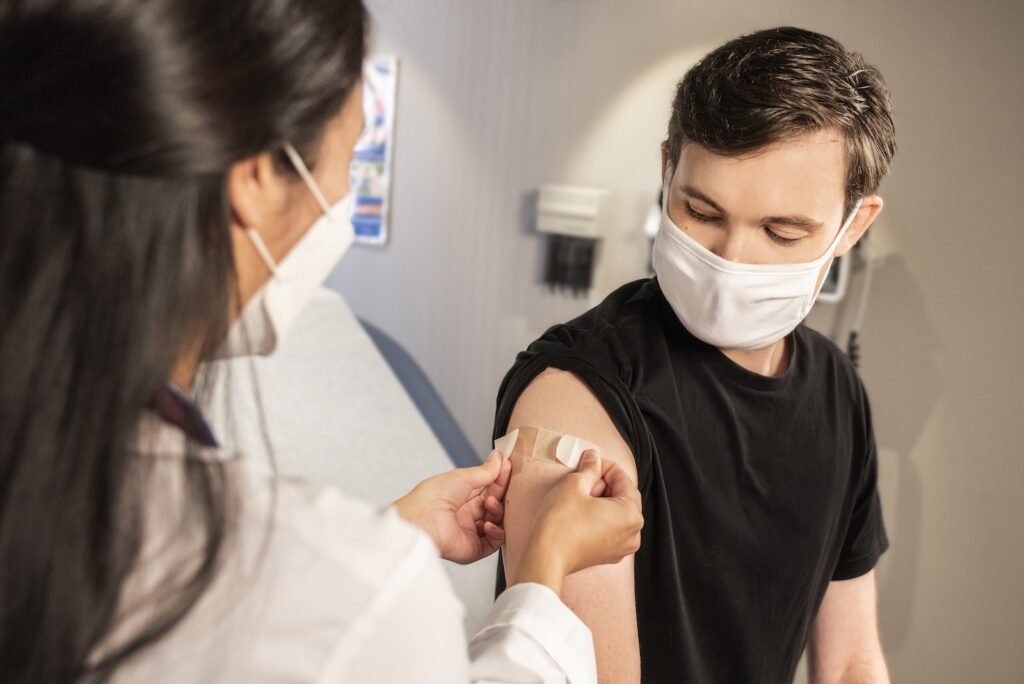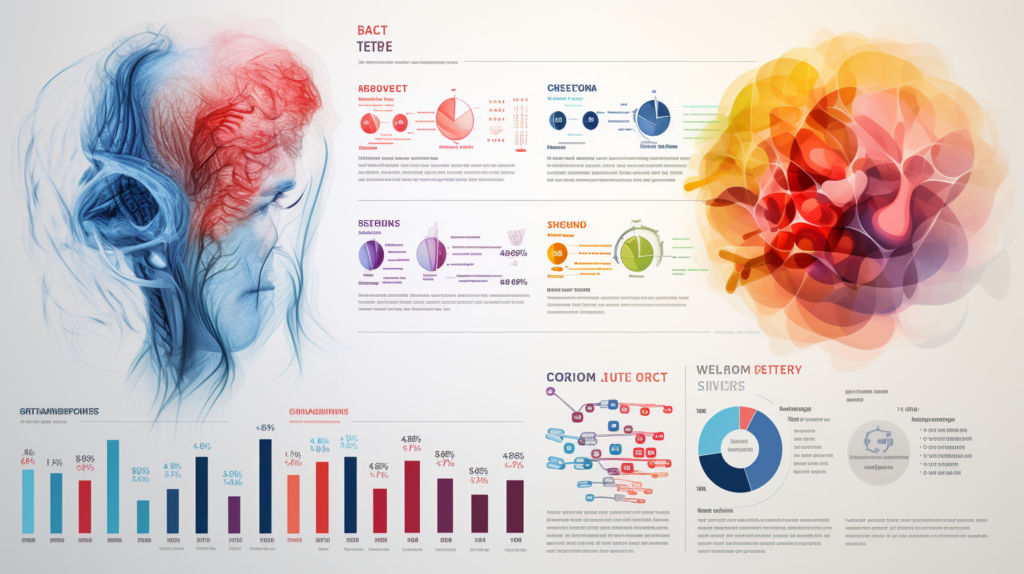Table of Contents
The Evolution of Healthcare: How Innovative Medicine is Changing the Game
In recent years, the healthcare industry has undergone a significant transformation with the introduction of innovative medicine. This evolution is largely driven by technological advancements, which have provided doctors and researchers with new tools to diagnose, treat and prevent diseases.
Gone are the days when patients had to wait weeks or even months for an appointment with their physician. Today, telemedicine enables individuals to access medical care from anywhere at any time via video consultations or mobile applications.
Precision medicine is another area that’s changing how diseases are diagnosed and treated. By analyzing an individual’s genetic makeup, doctors can personalize treatment plans based on a patient’s specific needs and risks.
Artificial intelligence (AI) is also playing a big role in revolutionizing healthcare. AI algorithms can sift through vast amounts of data to generate insights into disease patterns and predict potential health issues before they occur.
Another major shift we’re seeing in healthcare is moving towards proactive vs reactive management strategies. With predictive analytics, physicians can identify high-risk patients who may be prone to certain conditions or illnesses early on so they can intervene before symptoms appear or worsen.
“The healthcare industry will continue to evolve as innovative technologies become more widely adopted.”This expansion of digital technology has not only advanced medical practices but it has also impacted delivery methods such as online pharmacies which allow medication ordering; reducing costs linked with physical visits directly impacting our wallet whilst speeding up logistics process which eliminated delays caused due transportation challenges
.Telemedicine: Bringing Medical Care to Your Fingertips
In recent years, the healthcare industry has seen a surge in telemedicine services. Telemedicine is the use of communication technologies, such as video conferencing and mobile apps, to provide medical care remotely.
This innovation has brought numerous benefits for patients and providers alike. One of the most apparent advantages is convenience. Patients can now access quality healthcare from anywhere with an internet connection, without having to travel or wait in long queues at traditional clinics.
Furthermore, telemedicine has also improved accessibility to medical care for people living in remote areas or those who have mobility issues. Elderly individuals or patients with chronic diseases that require frequent checkups no longer need to make tedious trips to hospitals regularly.
Besides convenience and accessibility, telemedicine enables prompt diagnosis and intervention by reducing delays associated with scheduling appointments and waiting times before seeing a doctor physically. For example, if someone experiences symptoms that could indicate an emergency condition like a stroke or heart attack, they can consult an online physician immediately instead of being stuck in traffic trying to get physical access urgently.
The COVID-19 pandemic has further highlighted how crucial telehealth services could be during emergencies when non-emergent needs need caring for but visiting doctors becomes too risky while maintaining social distancing mandates.(italicize).. It’s undoubtedly helped reduce the risk of viral transmission among patients seeking medical attention while keeping them safe at home.(italicize) ..
Therefore Telemedecine is fast becoming more commonplace amongst clinicians due its versatility , speed,and cost efficiency which are all delivered without compromising on patient outcomes and safety.
So whether you are a patient or healthcare provider, it’s worth exploring the benefits telemedicine has to offer. By doing so, you can access quality healthcare anytime, anywhere – all at your fingertips.
Precision Medicine: Tailoring Treatment to Each Individual Patient
Precision medicine, also known as personalized medicine or individualized medicine, is a rapidly growing field in healthcare that involves tailoring medical treatment to each patient’s unique genetic makeup, lifestyle habits, and environment. The goal of precision medicine is to provide the most effective care possible by understanding the differences between patients and targeting treatments accordingly.
Traditionally, medical treatments have been developed based on large-scale clinical trials and population averages. However, this approach does not take into account the individual variability among patients. With advancements in genomics technology and data analytics tools, we can now identify specific genetic mutations that cause diseases or affect drug metabolism for each person. By better understanding these factors at a molecular level for each patient receiving treatment we are better positioned to treat health issues with greater accuracy providing more successful outcomes
For example, two people may present with similar symptoms of cancer; however, their underlying genetics may differ greatly influencing how they respond to certain medications. Instead of using a one-size-fits-all approach to cancer treatment which can be toxic if administered incorrectly – This is where Precision Medicine comes into play determining what medications will work best for an individual patient based on their unique biology ultimately increasing efficacy while fostering fewer side effects.
The benefits of precision medicine go beyond just treating disease; it has also shown promise in disease prevention by identifying individuals who are at high risk before any symptoms appear allowing early intervention before more aggressive treatments are needed.. With continued research and development Precision Medicine will continue its revolutionary transformational change impacting all areas Healthcare from Preventive Care through Chronic Disease Management creating safer more efficient long lasting solutions.
Artificial Intelligence in Healthcare: Revolutionizing Diagnostics and Disease Management
Artificial Intelligence (AI) has been a buzzword in various industries and healthcare is no exception. In recent years, AI technology has shown promising results for revolutionizing diagnostics and disease management.
With the help of machine learning algorithms, AI can analyze large volumes of medical data including patient records, lab reports, imaging studies and more to accurately diagnose diseases. This not only saves time but also helps clinicians make informed decisions about treatment options that are tailored to each individual patient’s needs.
One area where AI has made significant progress is in radiology. Medical images like X-rays or CT scans require expert interpretation which can take time and delay diagnosis. With AI-powered image analysis systems, doctors can get real-time analyses with high accuracy rates that outperform human experts in some cases.
The use of chatbots powered by natural language processing (NLP) technology is another exciting application of AI in healthcare. These virtual assistants interact with patients using spoken or written language to collect relevant information regarding their symptoms or medical history. The vast amount of data collected from these interactions feeds into the development of predictive models that improve disease management practices.
The BenefitsImproved Efficiency:A key benefit of implementing AI enabled technologies relates to efficiency gains throughout all aspects related to healthcare delivery.[1]
Precise Diagnoses:In certain applications such as radiology readings[2], computerized reading have already demonstrated higher precision than diagnostician doctors
Proactive vs Reactive Health Management: Using Predictive Analytics for Early Intervention
In the past, healthcare has been primarily reactive – people would seek medical attention only when they were already experiencing symptoms or had a specific concern. However, with advancements in technology and medicine, healthcare is shifting towards a more proactive approach.
This shift is being driven by predictive analytics. By analyzing large amounts of patient data using machine learning algorithms and other statistical models, doctors are able to identify patients who may be at risk for certain diseases before any symptoms present themselves.
For example, if a patient’s family history indicates that they have a higher likelihood of developing heart disease, their doctor can use predictive analytics to monitor their blood pressure and cholesterol levels more closely. This allows for early intervention through lifestyle changes or medication before the condition worsens.
Predictive analytics can also be used to identify patients who are non-compliant with their treatment plans. By monitoring prescription refill rates and appointment attendance, doctors can intervene early on and provide additional support so that their patients stay on track.
“By analyzing large amounts of patient data using machine learning algorithms and other statistical models, doctors are able to identify patients who may be at risk for certain diseases before any symptoms present themselves.”The benefits of this proactive approach are numerous: it leads to better health outcomes for patients, reduces healthcare costs (since preventing illness is less expensive than treating it), and results in overall improved quality of life.
If you’re interested in taking a more proactive approach to your health care, talk to your doctor about whether predictive analytics might be right for you.
Collaborative Care Teams and Patient Empowerment: A Holistic Approach to Health and Wellness
Innovations in healthcare are transforming the way that patients receive medical care, providing a more comprehensive approach to health that focuses on empowerment, prevention, and patient-centered care. One of the key elements of this transformation is the shift toward collaborative care teams that work together to provide patients with all the resources they need for better health outcomes.
When it comes to patient empowerment, every individual has unique needs, values, circumstances and preferences requiring personalized attention. Collaborating with multiple disciplines such as primary care physicians (PCPs), nurses, pharmacists or social workers ensure that those complex needs are met through an integrated team effort.
A collaborative team approach ensures coordinated care tailored specifically for each individual’s unique situation. By creating a supportive environment where everyone is working towards one common goal; preventing illness before it happens while treating chronic conditions more effectively creates empowered individuals who feel confident about their ability to manage symptoms associated with their health condition(s).
“In essence,” said Dr. Lisa Tufts at Johns Hopkins All Children’s Hospital in St Petersburg Florida, “patients become active participants in managing both acute and chronic conditions under close guidance from medical professionals.”This holistic approach empowers people by making sure they have access to quality healthcare advice when needed – whether it be online chats with specialists or support groups made up of peers dealing with similar issues – ensuring no one feels alone in navigating any type of health challenge they may face.
In conclusion:You don’t have to go at your wellness journey alone! Collaborative Care Teams will not only support you but also empower you throughout your entire journey toward optimal wellness!




